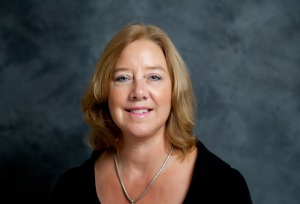The technology channel is a notoriously male-dominated field, which makes it an interesting case study for International Women’s Day. CDN got a chance to chat with Deanna Thomson, channel chief for Dell EMC Canada (and CDN’s #1 Newsmaker of the Year), about what the day means to her, how she encourages women leadership as a Dell executive, and what the future will look like.
[The following Q&A has been lightly edited for spelling and clarity]
CDN Now: What does International Women’s Day mean to you on a personal level?
Deanna Thomson (DT): I think it’s a pretty incredible movement, when you think about it. This is a day that’s certified for women all over the globe. After all of the things that have been happening in the news this last year, you really see this movement galvanizing women to stand up and have a voice, whatever that voice might be. I think that’s across many different aspects of our lives, but I really feel like we’ve got kind of an unprecedented wave of sound that’s coming from women and it’s very, very cool.
CDN Now: You’re a strong female lead in a very male-dominated industry. Can you talk about what Dell EMC has done to encourage more diversity and female leadership?
DT: We’ve done a bunch of things because diversity inclusion is a really key priority for Dell. It matters deeply to us, it matters deeply to our customers, and it matters to our partners. We have a global leader for diversity in place, and we have many employee resource groups, including a Women in IT group.
We also have a Women’s Partner Network that was launched last year at the Community Partners Summit where we’re trying to bring women together so that we can share our knowledge, share best practices, and also share some of the hardships we’ve experienced. We encourage discussion around how we can bring this industry to more women so that there’s more equality across the board.
I was just at a Dell global kickoff event and I was in a breakout room with maybe about 200-300 people. I looked around and there was a significant amount of women and diversity in that room. I don’t know that we’re perfectly at equality, but you certainly didn’t see an enormous imbalance. It was just a pleasure to look around the room and just see so many smart, bright, engaged, enthusiastic women participating.
CDN Now: That’s great to hear. How do you spread that diversity to the rest of the industry?
DT: That’s the hard part. I think all of us in IT are responsible for this shift, especially women in IT. We’re responsible for nurturing and caring for others, and we’re responsible for the recruitment of women by looking for them in all kinds of places. Obviously, technical colleges are one place, but there’s lots of places to find smart, bright, articulate women that are ambitious and enthusiastic.
I also think we can teach IT. None of us were born into IT, right? We either fell into it or we decided to go from school to taking a job in IT, and then it just becomes our industry. I think we have to do a better job of educating the fact that our industry is a good place for females to look, and I don’t know if we do that.
CDN Now: I think the general consensus seems to be that you have to start early, in the sense of we have to get young girls into STEM programs and getting them to take courses like that throughout school until they eventually come out of it with a postsecondary degree and potentially a job. What role can you play in doing that?
DT: I think it’s a multi-pronged approach and I really don’t think there’s one right way. It involves being a mentor, whether out in the community, out in schools, or wherever else you can think of. I think it’s incumbent upon all of us to do those things, to articulate what the IT industry can bring.
We should also lobby for some of the programs in our schools to suit female scholars. I think there’s a lot of research that says that female scholars learn differently than male scholars, so by embracing the different ways that people learn, we can create more energy around getting people into STEM fields that will ultimately bring people into the professional IT sector.
I think it’s not just STEM, as well. When you look around at our careers in IT, it crosses all kinds of facets. It could be sales, marketing, operations, editor, reporting, communications companies. We need to encourage a really broad spectrum of people to be looking at our industry because we really want the brightest and the best.
CDN Now: The younger generations, like millennials and Gen Z, are much more tech-savvy than the rest of the workforce. They were basically born using tech, so do you think that might change things when they eventually reach the age of entering the workforce or becoming leaders in it?
DT: I do. Young people coming into the workforce now are way more technology savvy than, say, I may have been when I started in IT industry. I think that they, especially women, need to be vocal about what it is that they want. They’re young, powerful, highly communicative, and highly technology savvy, and they get to decide where they want to work. So, as companies and as employers, we need to make sure that we’re offering the right tools, the right atmosphere, the right attitude about how we treat our employees, the right technology capability, the right devices, and the right access to information.
When you think about, as women get a larger and larger proportion of the workforce, we have a bigger voice. Therefore, we’re going to pick the companies that we want to work for and we’re going to migrate to those companies that not only have the right technology that we’re looking for but also the right diversity and inclusion policies.
CDN Now: As a leader yourself, how do you encourage the females within your own workforce to really be that person that has a voice without showing favouritism over men on your team who obviously are qualified and want to be there?
DT: I try to introduce as much development opportunities for all my team, regardless of who they are. For women in general, there are opportunities for women. There’s great development programs within our own organization, plus industry events like conferences and luncheons. I’m always looking for opportunities for my female team members to explore those areas so that they can figure out where they want to lend their voice to. And I encourage my male team members to go, too. How men learn about diversity and inclusion is by being in a room full of females that have a lot to say.
I’m certainly always looking for the best talent, but also making sure we’re adding diversity to the team because when you have people from different backgrounds and genders, you get different points of view, you get different opinions, and you get better results in your work.
CDN Now: Looking forward, how do you think things will change over the next five, ten years? Are you hopeful that there will be some sort of parity within the tech industry, or is that still too soon of a timeline?
DT: I don’t think it’s too soon. We’re seeing a groundswell of energy from around the world that’s changing things. And it’s not just females but everybody is standing up and saying, “Enough is enough.” People are articulating their point of view and things just aren’t getting swept under the rug as much as they have been so I am very, very hopeful for parity and equality. I think maybe five years is probably a little too soon, but five to ten is, I think, within reason. I don’t think we’re too far off.





